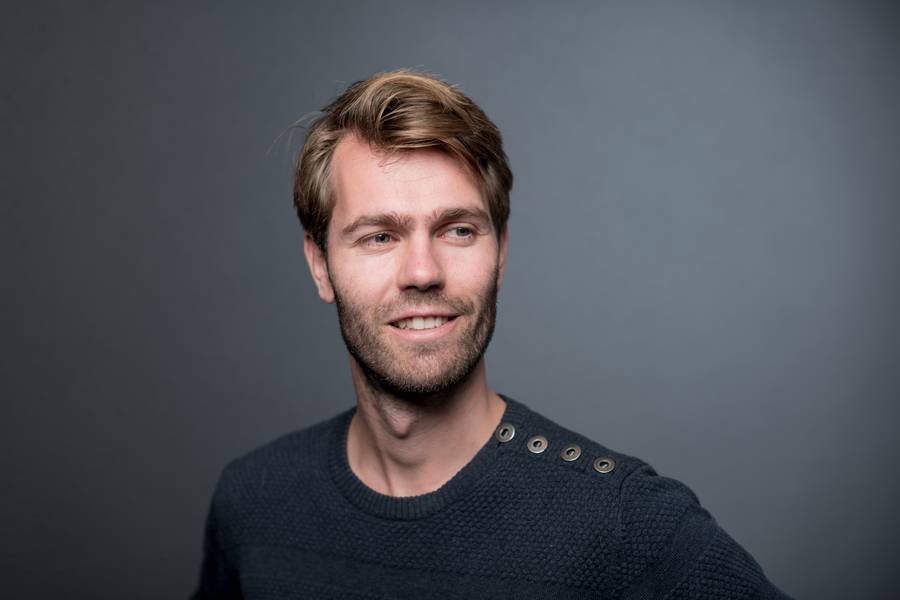Setting a New Standard
As an offshore engineer, Mark conducted numerous studies for clients, including analyses and reports. These reports were extensive and laden with jargon, which were then sent to insurance companies and eventually reached the ships: "A different language is spoken on ships, and the output didn't align well with practicality. We worked on these reports months in advance, necessitating cautious assumptions. Together with the former director, we decided this needed to change. We thought of software, doing more onboard, and a technically driven solution. My next task was to write the software, and within a year, we were convinced we could offer something new to the market. The next step was founding a new company: MO4. Driven by the desire to improve and do things differently. I always had the ambition to be an entrepreneur, and together we shaped the company and divided the roles."

Merging Two Companies
In 2022, the company moved to Rotterdam. Previously, operations were based in Amsterdam, but due to the acquisition of BMO Offshore from Delft, a shared location was needed: "It felt like we had just started when we got the opportunity to acquire BMO. The products were complementary, and they were more advanced in measurements. This analytical aspect aligned well with our philosophy. We were already tendering together for projects, so merging the companies was a logical step. However, it also brought an immediate challenge, as everything came together: people, contracts, technology. Both companies had tightly-knit teams that had to learn to collaborate and understand each other. By now, a single culture prevails, and everyone knows what they can expect from one another. The team takes responsibility and is eager to solve things on their own. This has also helped me transition into the role of managing director. Hiring the first person was difficult because, initially, we depended on subsidies and had no investors. There's a lot of project work in the offshore industry, leading to much uncertainty. Through this, we grew as a company and now work with a diverse team that complements each other well."
About MO4
-
MO4 offers four different products and services with a single clear goal: making maritime operations more efficient. This is achieved by learning from the past (MO4 Analytics) and optimizing for the future (MO4 Forecasting/-PRO). Onboard sensors collect data from movements, fuel consumption, gangway operations, and other sources. The software processes this data into relevant KPIs and statistics visible to users in the online web application. The MO4 analytics software makes future activities smarter with insights from the past. The standard version and a PRO version use an extensive database, wave forecasting, and user input for accurate predictions. This methodology reduces the risks associated with critical decisions. MO4 aims to make this approach the standard in future maritime operations. Current clients mainly operate from the Netherlands, Belgium, Denmark, and the United Kingdom.
Avoiding Rapid Innovation
Start-ups often focus heavily on technology; the product must be good and stable. Initially, this was also Mark's focus: "We put a lot of emphasis on building and creating a scalable product from scratch. This is primarily an internal process. Now, we consciously work closely with the customer. This is for the connection with reality and to gain a deep understanding of the corporate world. Who is where, what is important, what problems do they want to solve? We engage in conversations with customers and prefer to meet monthly. We also go offshore with end-users to understand their specific needs. We need to apply the same approach to our team. We want to hire not only developers and engineers but also people who can think alongside the customer. A problem isn't solved with technology alone. Customers work in a certain way, and we need insight into that. For a start-up, being too far ahead is not the best option, as customers might not grasp the concept. Developing step by step and collaborating with the customer is a better route. Only when they see the value proposition can progress be made."
Creating an Innovative Climate
Customers want to utilize their ships to their fullest potential. Therefore, MO4 aims to establish a new standard: "Our software is always somewhat customized, as an installation vessel has different needs than a small maintenance ship. Data from the software enables customers to set up and maintain wind farms more quickly and effectively. Together, we create an innovative climate. The narrative around our solution is crucial because customers need to have a certain feeling about the product. I had to learn this myself, and I can rely on our experienced investor for guidance. For start-ups, involving a commercial person in the company as soon as possible for translation purposes is essential."
